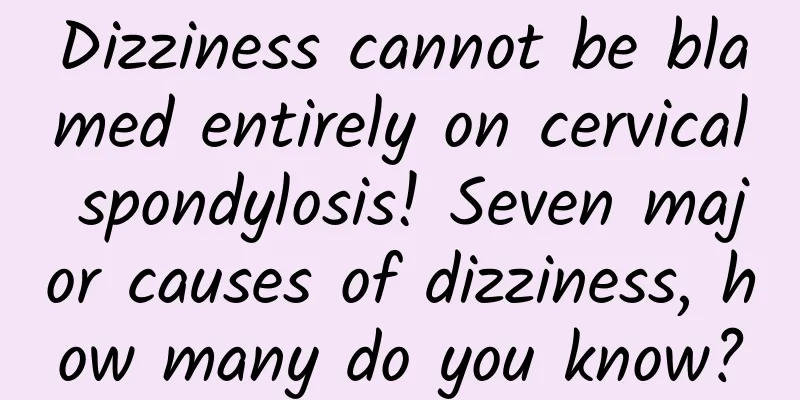Gastritis: Know this potential "stomach" enemy

|
Gastritis is a common disease of the digestive system that can cause a lot of trouble in our daily lives. This article will introduce the symptoms, causes, diagnosis and treatment methods, and preventive measures of gastritis in detail to help you better understand this potential "stomach" enemy. 1. Symptoms of gastritis The main symptoms of gastritis include upper abdominal pain, fullness, loss of appetite, nausea, vomiting, etc. These symptoms may affect the patient's daily life and work. Some patients may also have intestinal discomfort symptoms such as diarrhea and constipation. Upper abdominal pain: Patients with gastritis may experience upper abdominal pain, which may be continuous or paroxysmal, and the severity of the pain may vary. Fullness: People may feel a sense of fullness in their abdomen, especially after a meal. Loss of appetite: People with gastritis may experience a loss of appetite due to abdominal discomfort and pain. Nausea and vomiting: People with gastritis may experience nausea and vomiting, especially after meals or on an empty stomach. Other symptoms: Some patients may experience intestinal discomfort symptoms such as diarrhea and constipation, and may also be accompanied by symptoms such as belching and acid reflux. 2. Causes of Gastritis The causes of gastritis are varied, mainly including the following aspects: Helicobacter pylori infection: This is one of the most common causes. Helicobacter pylori is a common bacteria that can colonize the stomach and cause inflammation. Dietary factors: Irregular diet, overeating, and eating spicy foods may all cause gastritis. Environmental factors: Being in a stressful and tense environment for a long time, or having bad habits such as smoking and drinking, may also lead to gastritis. Other factors: such as drug allergy, immune system abnormalities, etc. may also be related to the occurrence of gastritis. 3. Diagnosis and treatment of gastritis The diagnosis of gastritis mainly relies on endoscopic examination and gastric mucosal histological examination. Endoscopic examination can observe the degree and location of gastric mucosal inflammation, and samples can be taken for histological examination to determine whether there is Helicobacter pylori infection or other causes. The treatment methods for gastritis mainly include drug treatment and adjustment of lifestyle habits. In terms of drug treatment, antacids, antibiotics, gastric mucosal protectants and other drugs are mainly used to relieve symptoms, eliminate inflammation and promote gastric mucosal repair. Adjustment of lifestyle habits includes regular diet, avoiding overeating and eating irritating foods, quitting smoking and drinking, maintaining a good work and rest schedule and mood, etc. For patients with Helicobacter pylori infection, Helicobacter pylori eradication therapy is required. This usually requires treatment with drugs such as antibiotics, and regular follow-up after treatment to ensure that the infection has been completely eliminated. 4. Measures to prevent gastritis The prevention of gastritis can be started from the following aspects: Maintain healthy eating habits: Eat regularly, avoid overeating and consuming irritating foods, and eat more foods rich in vitamins and minerals. Also avoid bad habits such as excessive drinking and smoking. Maintain a good work and rest schedule and mood: avoid overwork and excessive stress, and keep a happy and relaxed mood. A good mental state can improve the body's immunity and reduce the occurrence of diseases. Quit smoking and drinking: Both smoking and drinking may increase the risk of gastritis. Quitting smoking and drinking can protect the gastric mucosa and reduce gastric irritation and inflammation. Regular physical examinations: Regular physical examinations can help detect and treat potential diseases in a timely manner. Examination items include endoscopy and gastric mucosal histology, which can detect gastritis and other digestive system diseases early. Treat and control other diseases: Actively treat and control other diseases, such as diabetes, cardiovascular disease, etc., can reduce the occurrence and aggravation of gastritis. In short, understanding the symptoms, causes, diagnosis and treatment methods, and preventive measures of gastritis can help us better deal with this common digestive disease. At the same time, maintaining good living habits and mentality, and adjusting unhealthy lifestyles in a timely manner can help prevent the occurrence of gastritis. If you have any concerns or related symptoms, please seek medical attention and receive professional treatment in a timely manner. |
<<: Improve neck and shoulder pain
Recommend
Can I drink beer if I have breast hyperplasia?
Beer is a type of alcohol that people often drink...
What causes women to have lower abdominal pain?
It is common for women to experience lower abdomi...
The nemesis of pelvic inflammatory disease
Pelvic inflammatory disease is a common gynecolog...
What are the symptoms of progesterone deficiency?
Nowadays, more and more women are suffering from ...
The hidden nutritional expert in the vegetable world actually has six major health benefits?
There is a class of vegetables that can be called...
"Lying down for lunch break" is imperative
Folding chairs, small tents, nap rooms... Finally...
Inguinal lymph node pain in women
Women's physical constitution is relatively w...
Spring Festival Health Guide: Prevent respiratory infectious diseases and make your travel safer
Editor's note: Recently, Guangming Online'...
Are solid breast nodules serious? Experts say so!
Ladies, please pay attention. Once breast nodules...
My period is small and the amount is not painful
Menstruation can be said to be the physiological ...
Can I grow mushrooms at home? Yes, but eating them might land me in the hospital
Produced by: Science Popularization China Author:...
How to make chicken soup the most nutritious? How long to stew chicken soup
Chicken soup is a traditional soup dish and a com...
What should I do about the size of my breasts after weaning?
After weaning, a mother's breasts will begin ...
Is it good to eat bananas during pregnancy?
In the early stages of pregnancy, you must be car...
Protect our organs in summer
In summer, under hot and humid weather, some orga...









